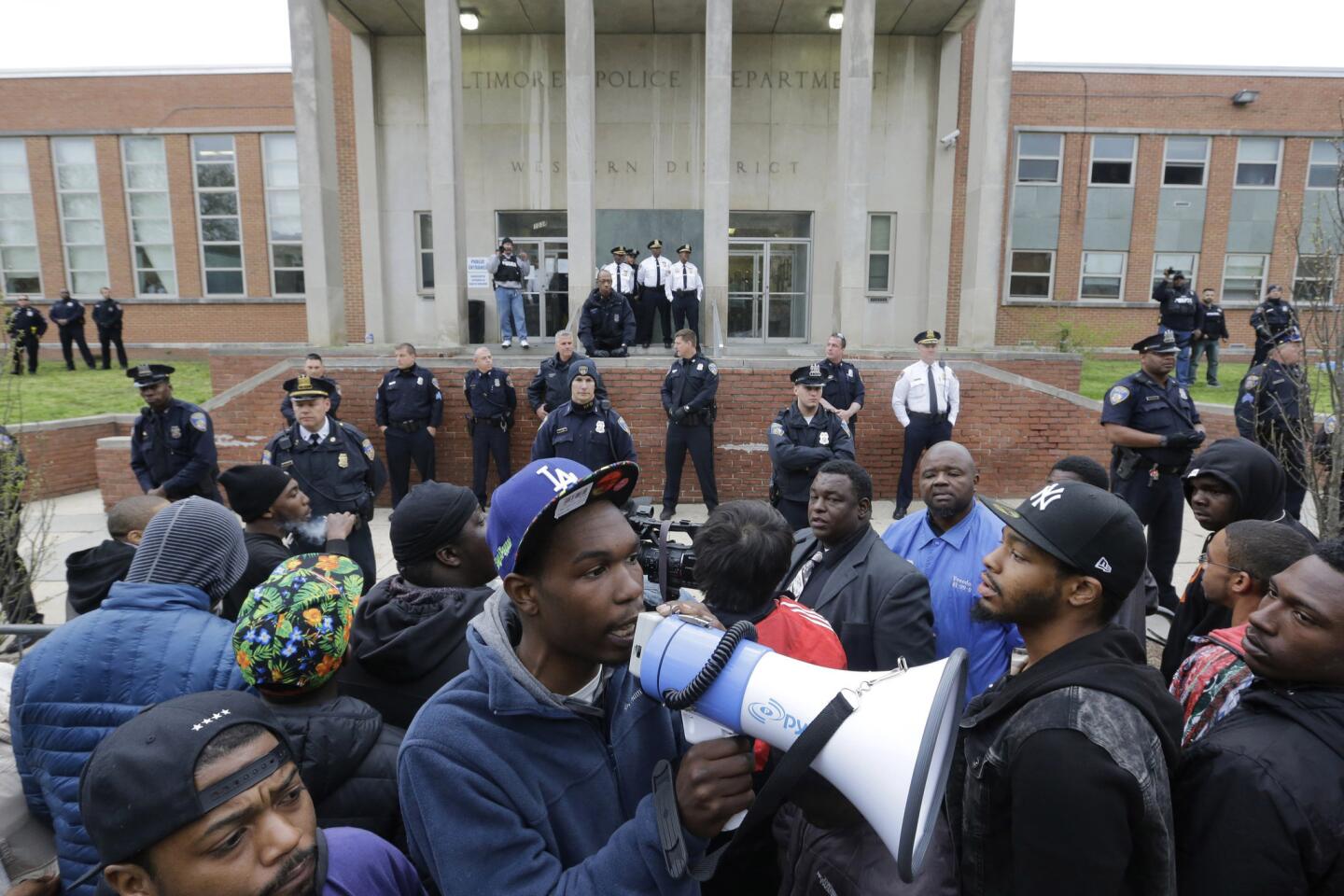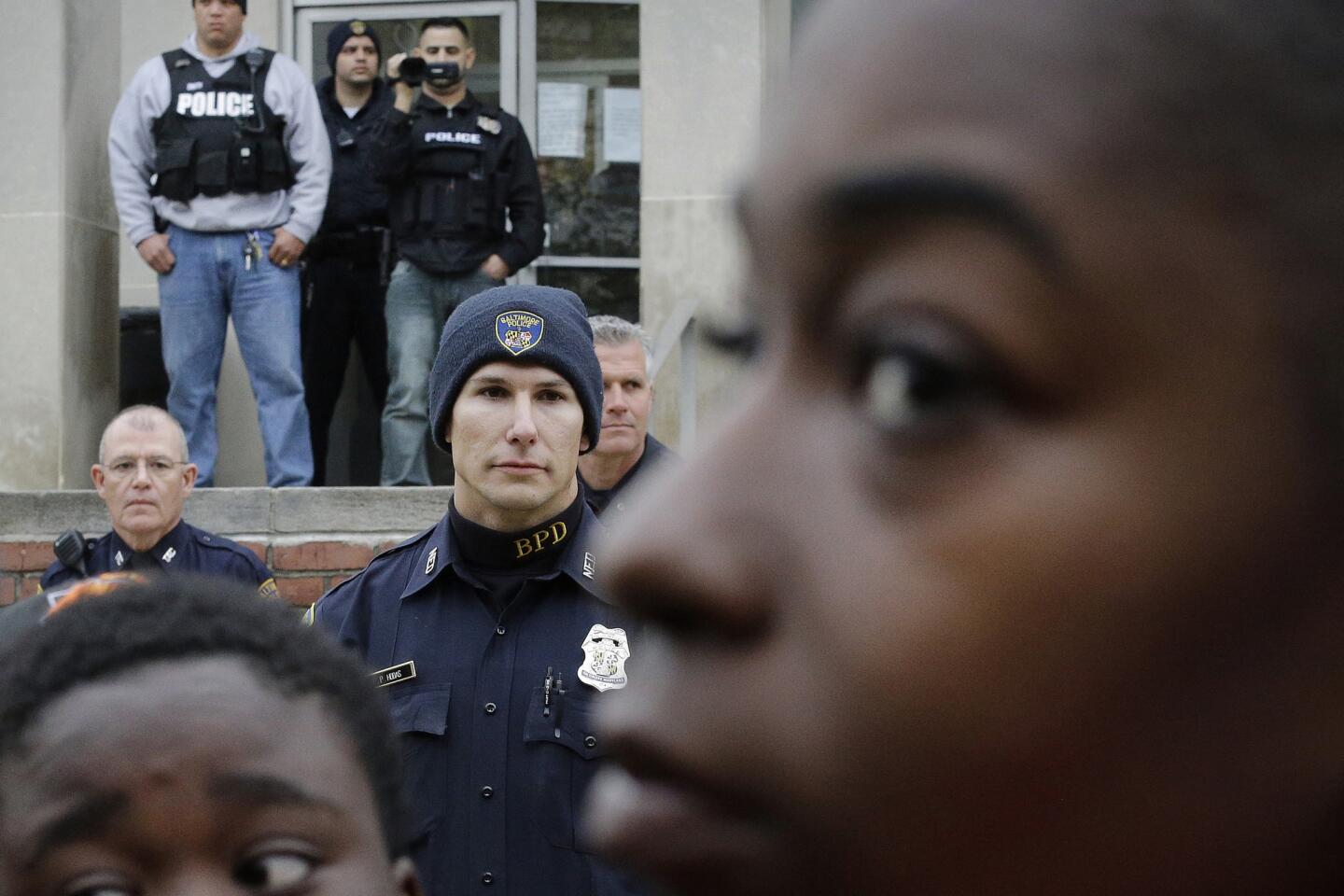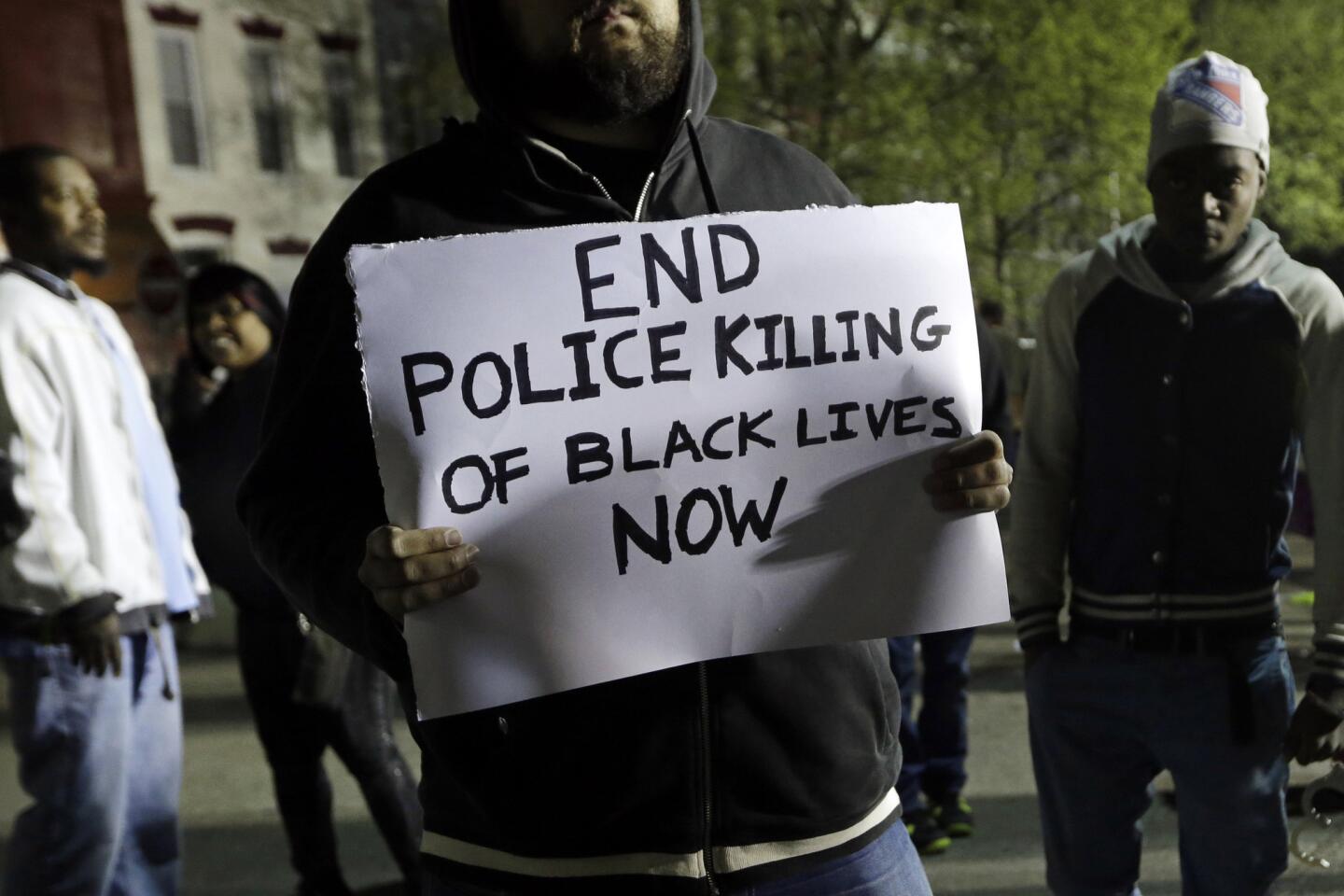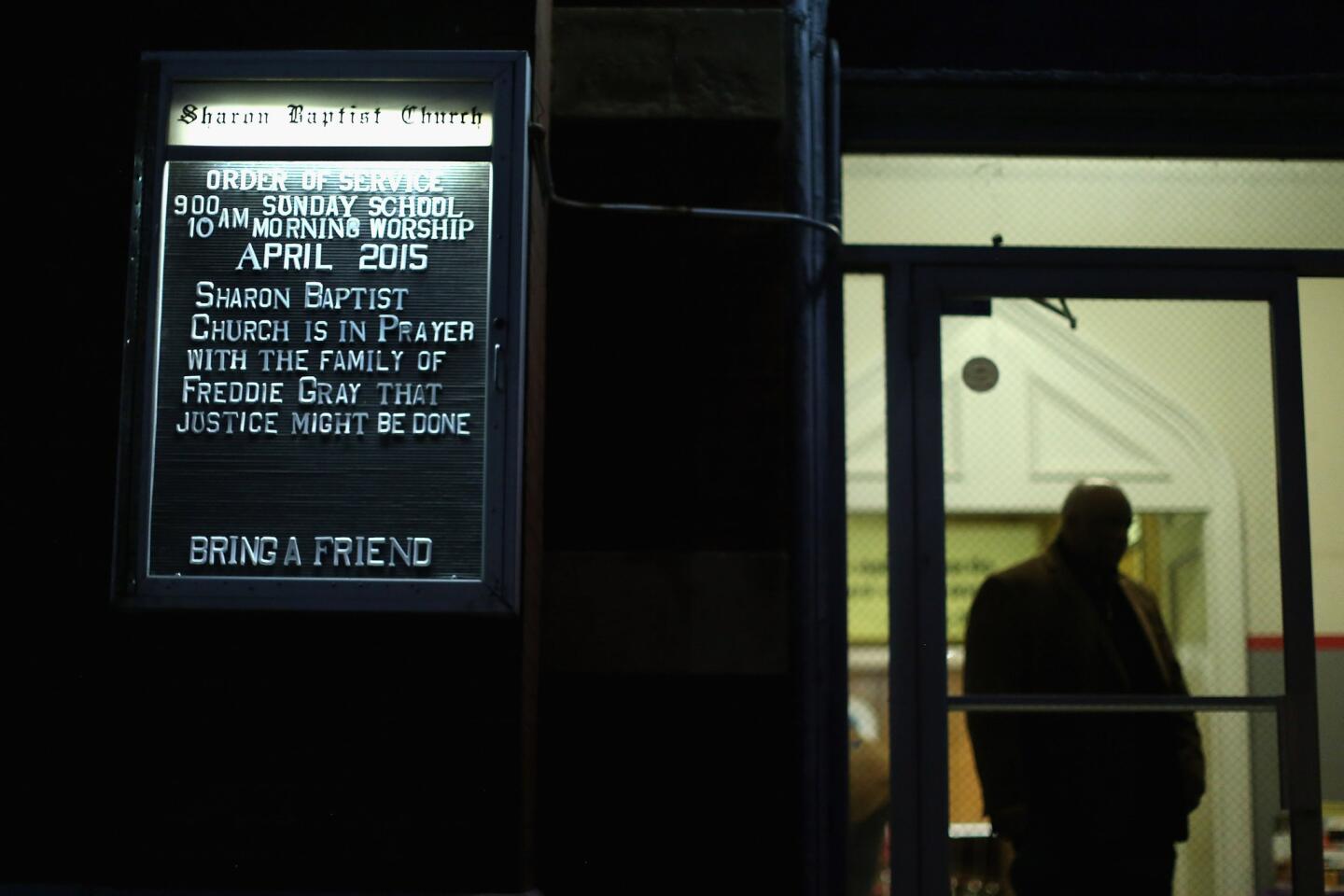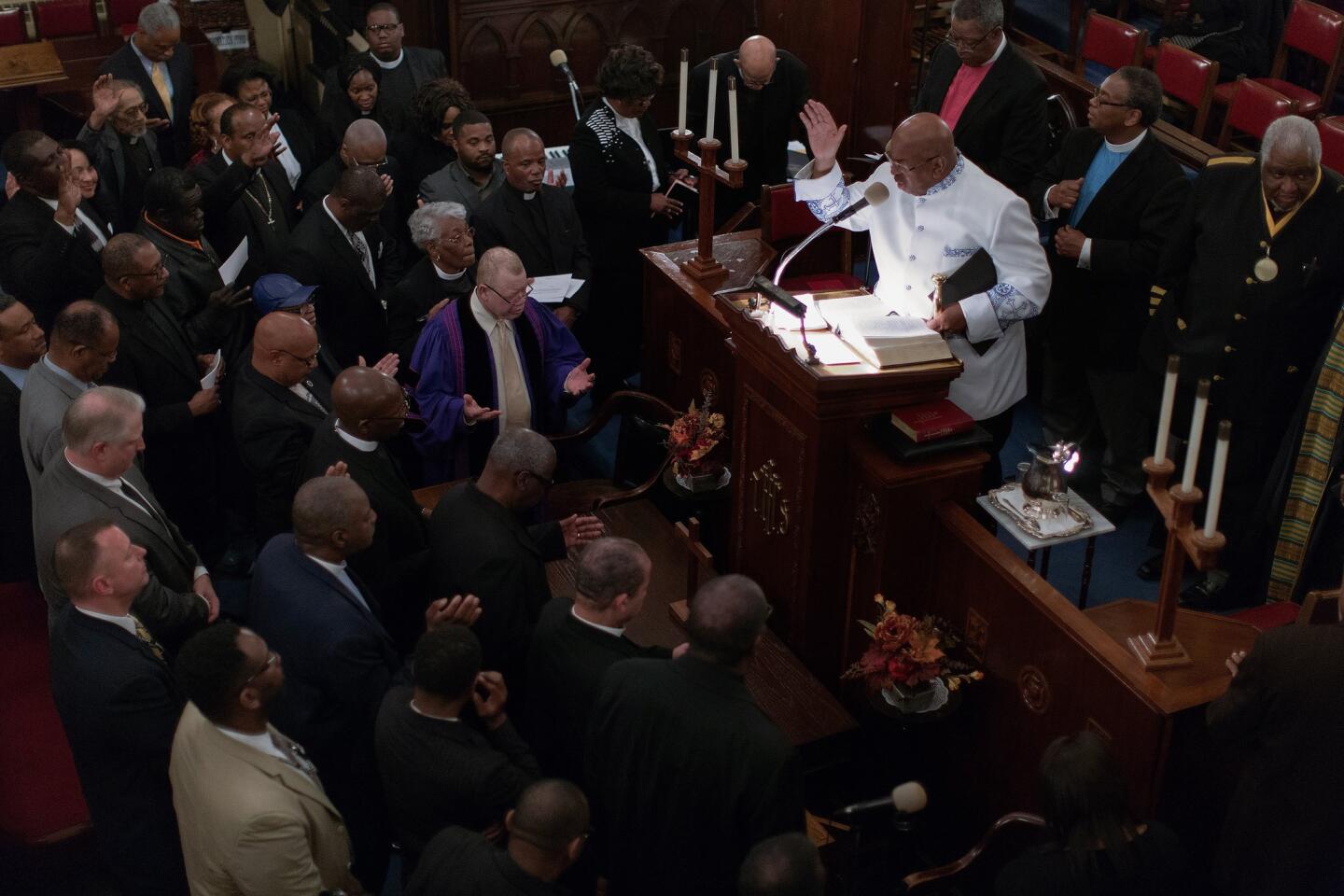ACLU motion cites Baltimore jail’s dire conditions
- Share via
The American Civil Liberties Union filed a motion Tuesday to reopen a lawsuit calling for major reforms to Baltimore’s city jail, citing reports from inmates who said they struggled to receive HIV medication and were stuffed into crowded, vermin-ridden cells.
The conditions at the city jail, which have been documented in a series of lawsuits and court orders, gained national attention in April when hundreds of protesters were detained there after demonstrations and riots over the death of 25-year-old Freddie Gray, who was severely injured in police custody.
“Every minute spent in the jail is punishment,” the ACLU said in the motion. “Too often such confinement becomes life-threatening punishment.”
The ACLU argued that the jail, which holds about 3,000 prisoners, had repeatedly failed to comply with the terms of a settlement with the Justice Department reached in 1993 and expanded over the years, with the last agreement in 2012.
Inmates suffering from long-term health problems, including diabetes and HIV, said they would go days without receiving necessary medication, while others complained of spending days locked in cells without working toilets or sinks.
Many of the facility’s shower drains are full of “drain flies, black mold and filth,” according to the motion.
“Despite a half-century of litigation, and repeated promises by city and state officials, [Baltimore City Detention Center] remains a dank and dangerous place, where detainees are confined in dirty cells infested with vermin,” the motion said.
Stephen T. Moyer, head of Maryland’s Department of Public Safety and Correctional Services, said his administration had been in place for just four months and was attempting to review conditions at the city jail when the ACLU filed its motion.
“I respectfully asked for time to address these concerns and was told no by attorneys for the plaintiffs,” he said in a statement. “We are committed to providing the best service to our clients and will remain committed to ensuring that accepted standards are met.”
The ACLU cited medical records and interviews with dozens of inmates who were denied access to proper medical treatment. One patient did not receive needed HIV medication until just days before his death, the motion said.
Inmates have been kept in sweltering conditions in the jail, which can become extremely humid in the summer. At one point last summer, nearly a quarter of the facility’s fans were in need of repair, the motion said.
In April, after Baltimore police arrested hundreds of people during citywide rioting, the city public defender’s office argued that detainees were being held in cramped conditions for days.
The jail struggles to provide adequate laundry services, said Deputy Public Defender Natalie Finegar, who said many detainees washed their personal items in toilets.
Finegar, who previously worked in a public defender’s satellite office within the jail, said she saw cases of scarlet fever and MRSA, a deadly drug-resistant bacterial infection, spreading through the facility on more than one occasion.
“At various points I’ve had to contact my staff and let them know they’ve been exposed to these things,” Finegar said. “It’s kind of running rampant at a facility where there aren’t a lot of opportunities to stay clean.”
james.queally@latimes.com
Twitter: @JamesQueallyLAT
More to Read
Sign up for Essential California
The most important California stories and recommendations in your inbox every morning.
You may occasionally receive promotional content from the Los Angeles Times.
